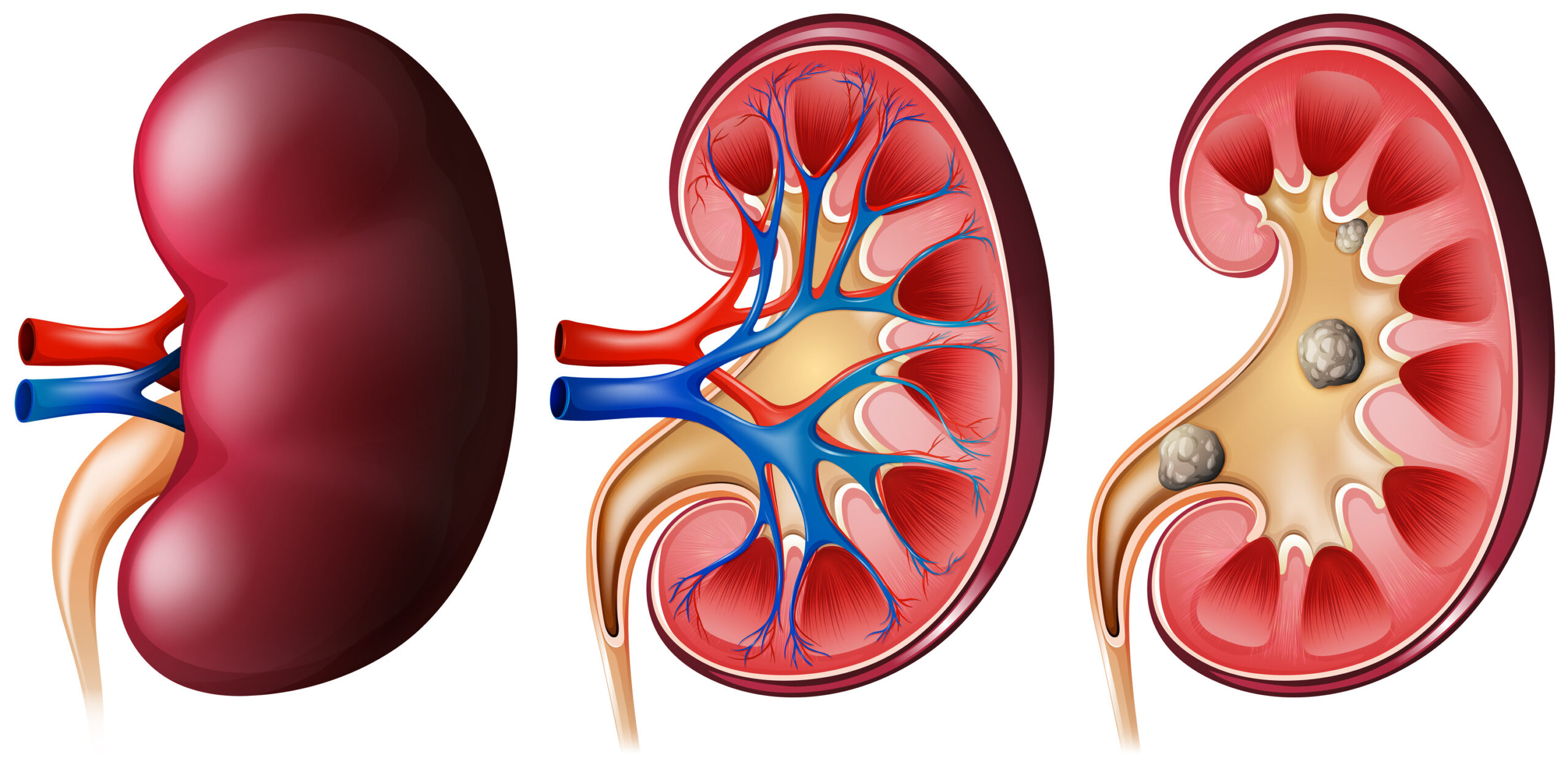Kidney Stones

Kidney Stone Treatment in Nashik
Led by Dr. Lomesh Kapadnis, a distinguished urologist in Nashik, Siddhidata Urology Clinic offers expert care for kidney stone-related concerns. Kidney stones, also known as renal calculi, are mineral and salt deposits that can form in the kidneys and cause discomfort.
Types of Kidney Stones:
Kidney stones can vary in composition, and understanding their type is crucial for effective treatment and prevention. The common types of kidney stones include:
- Calcium Stones: These are the most prevalent and typically consist of calcium oxalate. Consuming excessive oxalate-rich foods, dehydration, or certain medical conditions can contribute to their formation.
- Struvite Stones: Often linked to urinary tract infections, struvite stones can grow rapidly and become quite large. They primarily consist of magnesium ammonium phosphate.
- Uric Acid Stones: These form when there is an excess of uric acid in the urine, which can occur due to a high-purine diet, gout, or specific genetic factors.
- Cystine Stones: Rare but recurring, cystine stones result from an inherited disorder that causes the kidneys to excrete excessive cystine, an amino acid.
- Mixed Stones: Sometimes, stones may have a combination of minerals, making their composition more complex.
Determining the type of kidney stone is crucial for tailoring treatment and developing strategies to prevent their recurrence.
Risk Factors for Kidney Stones:
Kidney stones can affect anyone, but certain factors may increase your susceptibility. These risk factors include:
⦿ Family History: If you have a family history of kidney stones, your risk may be higher.
⦿ Dehydration: Inadequate fluid intake can lead to concentrated urine, increasing the risk of stone formation.
⦿ Diet: Consuming a diet high in sodium, oxalate-rich foods (like spinach and nuts), and animal proteins can contribute to stone development.
⦿ Obesity: Excess body weight can alter calcium and uric acid levels, promoting stone formation.
⦿ Medical Conditions: Conditions like urinary tract infections, inflammatory bowel disease, and certain metabolic disorders can elevate stone risk.
⦿ Medications: Some medications may increase the likelihood of stone formation.
⦿ Geographic Location: Living in regions with hot climates and high evaporation rates can lead to more concentrated urine, raising the risk.
⦿ Previous Stones: If you’ve had kidney stones before, your chances of recurrence are higher.
Symptoms of Kidney Stones:
- ⦿ Intense, radiating pain in the back or side
- ⦿ Painful urination
- ⦿ Blood in urine
- ⦿ Frequent urination
- ⦿ Nausea and vomiting
- ⦿ Cloudy or foul-smelling urine
- ⦿ Persistent urge to urinate
Treatment Options:
- Medical Management: Depending on the size and location of the stone, conservative measures such as increased fluid intake and pain relief medication along with Hydrotherapy may be recommended.
- Lithotripsy: Non-invasive shockwave lithotripsy breaks down larger stones into smaller fragments, making them easier to pass naturally.
- Ureteroscopy: For stones lodged in the ureter, minimally invasive ureteroscopy is employed to remove or break down the stone using a thin endoscope ( Ureteroscope) inserted through the urinary tract.
- Percutaneous Nephrolithotomy (PCNL): Larger stones may require PCNL, where a small incision is made in the back to access and remove the stone from the kidney by a Nephroscope.
- ⦿ Retrograde Intra-Renal Surgery (RIRS): For smaller stones in kidney, a flexible ureteroscope is passed per urethrally inside the kidney and stone is broken into pieces with the help of Laser.
- Preventive Measures: Our team also provides guidance on dietary and lifestyle changes to reduce the risk of recurrent kidney stones.
Dr. Lomesh Kapadnis, the best Kidney Stone Doctor in Nashik, provides excellent and curative treatment on your Kidney stones with a comprehensive approach.
